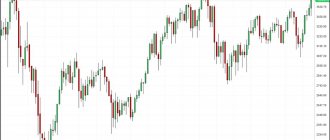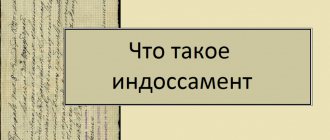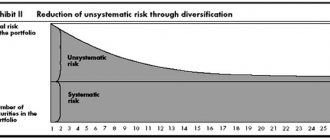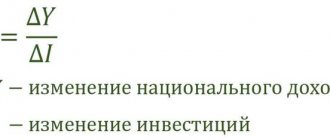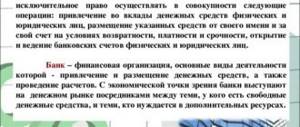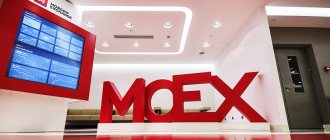Lazy Investor Blog > Need to Know
The US stock market, especially in the eyes of novice investors, has traditionally been considered reliable and transparent. It is generally accepted that price manipulation and corporate collusion are impossible or quickly suppressed. But is this really so? This article is a short excursion into the activities of a powerful government regulator - the SEC Securities Commission.
The role and significance of the SEC is the main instrument of investor confidence in the United States.
Roosevelt's New Deal from 1933 brought the country out of the “Great Depression” (1929-1932) and became the starting point for the transformation of the United States into a “superpower”. The key element of the reforms was not the construction of highways with a sharp reduction in unemployment (as modern economists write about), but the creation of a mechanism for long-term and STABLE attraction of investments into the American economy through “full protection of investor rights” by the state.
The federal agency SEC, which received DICTATORY powers from the moment of its establishment (1934) to this day, began to control this process.
What are the results of the SEC's 85 years of work to protect investor interests? Look at the capitalization of the largest American stock exchanges - NYSE $32 trillion. (September 2018) and NASDAQ - $7 trillion (2018).
Is it a lot or a little? This is 3 times more than China's GDP in 2021. Such a large-scale attraction of investments in the United States was largely due to TRANSPARENCY and guarantees guarded by the SEC. It is not without reason that 54% of Americans invest their savings in the American stock market.
Offshores and contracts
The agreement between the Cyprus Commission and international missions wishing to obtain data on the entrepreneurial employment of certain funds deserves a special mention. Formally, this is not prohibited, and the Cypriot authorities, having the status of a member of the international community of regulators, must provide this information. But this does not mean disclosing specific names and volumes of assets and money transferred through the vicissitudes of the Cypriot stock markets.
Often the process of offshore funds transfer is a guarantor of tax-free work only thanks to the soft legislation of this island republic. Indeed, tax departments of other countries, even having data that a certain person owns the rights to the assets of Cypriot companies, cannot withdraw tax costs for their benefit. Thus, even with full disclosure, offshore companies remain a reliable method of transactions to reduce the tax burden.
Who does the SEC control?
The US Securities and Exchange Commission controls
- 1. ALL participants in financial markets , namely all stock and commodity exchanges - NYSE, NASDAQ, CME, SWOT, SVOE, NYMEX, ICE, COMEX, MGEX, BATS Global Markets, etc.
- over-the-counter markets, including OTC Markets Group and OTC Bulletin Board;
- all issuers of securities that issue shares, bonds and derivatives of their enterprises on exchanges or on the over-the-counter market;
- all hedge funds (including Buffett and Soros funds);
- all financial asset management holdings (BlackRock with a capital of $6 trillion, The Vanguard Group with $4.8 trillion, JPMorgan Chase with $2 trillion, etc.);
- exchange-traded ETFs that copy the investment portfolios of the largest stock indexes (iShares with assets of $1.21 trillion, State Street (SSGA) with $546 billion, etc.);
- investment banks;
- brokers,
- market makers.
Considering that ALL global corporations issue securities that are listed on one of the US exchanges, guess at once what the SEC REALLY controls? That's right, all global financial flows invested through one type of securities or another (i.e., everything except direct financial transfers from bank to bank, which is subject to the monitoring of another US federal agency).
Subjects of the US Exchange Commission
SEC controls:
- issuers;
- brokers (commission and directly on the floor);
- registered traders;
- institutional investors;
- exchanges (NASDAQ with high-tech companies, NYSE with large-cap global companies, AMEX with small-cap companies);
- over-the-counter markets;
- market makers;
- hedge funds;
- investment consultants;
- rating agencies;
- ETF funds;
- non-governmental regulatory organizations;
- operators (depositories, etc.);
- investors purchasing more than 5% of the issuer's shares.
Main functions of the SEC:
- Control over compliance with federal laws relating to the activities of financial markets.
- Supervision of activities in the securities market and protection of investors from fraud and manipulation.
- Control over investor access to significant financial and other information that public companies are required to provide.
- Establishing rules for the registration of securities offered for sale, as well as the operation of capital markets and stock exchanges.
- Oversight of private regulators, accounting and auditing activities.
- Control of corporate takeovers in the USA. For example, in the case of a purchase of more than five percent of a company's equity capital, the buyer is obliged to report this to the Commission, since in such a situation a takeover risk arises.
Commission Rulemaking Process
The organization has the broadest powers in developing rules and monitoring the operation of the securities market. In addition, the Commission has the right to supplement and amend existing rules. It is stated that the legislative process takes place in several stages:
- Concept creation. It outlines topics of concern. Various solution approaches are identified. Questions are raised to determine public opinion. Public responses are taken into account if they are considered relevant.
- Proposal for new rules. After approval by the Commission, they are published for general discussion. As a rule, the discussion lasts 30–60 days.
- Acceptance of the rule. After reviewing public comments, the new rule is approved, becoming part of the regulations governing the industry. Many rules come into force immediately, but sometimes the Commission sets a delayed date or introduces amendments in stages.
To summarize, I want to draw attention to one more aspect. The Commission's structures not only control the huge monetary turnover of American markets ($50 billion per day), but also bring quite significant income to the treasury.
Thus, over 5 years, from 2013 to 2021, the Commission collected more than $10 billion in fines. At the same time, it can impose sanctions on a company or citizen of any country that in one way or another took part in US stock trading.
To avoid problems, you should not only strictly follow all the rules, but also understand the signals that the SEC gives. For example, during 2021, the Commission strengthened its actions against cryptocurrencies and called on people to beware of toxic offshore zones, which included Algeria, Ecuador, Myanmar, and Vanuatu.
Thank you for reading the text to the end, I hope it was interesting and useful. Subscribe to articles and share them on social networks. All the best!
High-profile SEC investigations
The scale of the SEC investigation is clear from the statistics: in 2018 alone (reporting period from September 2021 to September 2018), the SEC opened 490 cases, issuing fines totaling $3.95 billion! The figure is comparable to the GDP of Montenegro or the Maldives for the same year.
Let's give a few examples to understand who is fined by the US Securities and Exchange Commission and for what.
Scope of regulation
The main goal of the Securities Commission is to maintain transparent and efficient stock markets:
- controls the participation and organization of work of firms and individual investors;
- carries out inspections of organizations that deal with securities;
- sets rules, develops standards, assesses trade risks.
By supervising trading on the market, the Commission controls changes in the value of securities, the procedure for calculating dividends and other payments.
Dividends
This is a distribution of remuneration from the issuer's profits. They are determined and managed by the board of directors and approved by the board of shareholders. Most often they are paid once a year, but can be semi-annual or even quarterly.
Other types of periodic payments
In addition to dividends, periodic payments include payments on bonds - coupons. If dividends can be accrued by decision of the board of shareholders, then coupons are mandatory payments. The yield on a debt security is calculated daily but is paid on a specific date.
Increase in the cost of the purchased instrument, exchange rate difference
Stocks and bonds are the two main assets that investors use in their portfolios. In addition to mandatory payments on these securities, an investor can make a profit by playing on exchange rate differences.
During an initial public offering on American stock exchanges, the value of the enterprise is assessed - market capitalization. Based on this, the share price is set. Over time, the company develops, its capitalization grows, and the value of the security also increases.
Example: the global market leader in CRM systems, Salesforce. In less than 10 years (since 2009), the value of the company's shares has increased 12 times. The profit of investors who bought shares during the placement amounted to 1200%.
SEC investigation against Elon Musk, founder of Tesla Corporation
In 2021, the SEC fined Tesla founder Elon Musk $20 million for a tweet about his “desire to buy all Tesla shares.” The shares immediately jumped in price, and the SEC began an investigation, which resulted in finding out that Musk had neither the financial capabilities nor the intentions that he publicly announced. Result: a fine for “manipulation on the stock exchange” and a temporary ban on being on the board of directors of his own company.
Tesla Corporation was fined separately for the same amount.
SEC investigation into world boxing champion Mayweather
In 2021 The SEC fined multiple world boxing champion Floyd Mayweather Jr. $614.7 thousand. He was accused of secretly promoting Centra Tech's ICO. Yes Yes exactly. The famous athlete “forgot” to warn subscribers on his social network account that he received money from Centra Tech for advertising their crypto project when he wrote that he considered their tokens “promising for investment.”
Mayweather did not agree with the accusation, but... paid the fine.
Surprised? Now remember how many movie and sports stars of the Russian Federation and Ukraine told on Yotube (without the “advertising” tag) how they “successfully invested” in the financial pyramids MMM-2011 and MMCIS, or how they “traded profitably on Forex” in Teletrade or Forex companies Club. So,
- Gosha Kutsenko claimed that he earned 155% of the profit and is therefore ready to go “with Forex Trend - both into fire and into water!” (video);
- Boris Burda, Alexey Buldakov, Boris Barsky and many other screen stars turned out to be “very successful traders” in another MMCIS financial pyramid.
- “successfully traded” in the financial pyramids Mill Trade / MMCiS at this time and Eric Nyman is an analyst and author of popular books about Forex. No, no one saw online monitoring of his trading after the Mill Trade statements with non-existent quotes were ridiculed on the MMGP forum, the “broker” stopped taking risks and simply began to “draw profitability” (to Eric Naiman, as much as 9.2% per month), profit from which, however, no one brought out, because The kitchen broker immediately closed.
Comments from the Masterforex-V wiki: let’s not joke about the term “earning money” from a broker, which can be interpreted broadly (including income from advertising) , but we note that this is impossible in the USA, thanks to the active work of the SEC. Not a single “sports or movie star” (especially “analysts”!) has NEVER dared to call themselves a “successful trader” or to US investors, knowing that they would immediately fall under a thorough and comprehensive investigation by the SEC with a meticulous exam on technical analysis and wave theory Elliott, trading system, trend and flat, time frames and levels of resistance and support, symmetrical and ascending triangles of the market, trend continuation patterns of flag, pennant, wedge and their differences from dozens of reversal patterns on the market, proprietary indicators and advisors, stop loss, differences scalping from swing trading, and take profit from horizontal and vertical volumes. And no one will allow you to “retake” the “exam” at the SEC or hide a cheat sheet in your smartphone.
Yes, Hollywood stars make money from advertising, but each of their videos has an “advertising” tag and shows a story in the “advertising” section, not financial news with a story about how the “star” successfully trades in the financial markets with one or another stock exchange or a currency broker. And this is clearly and objectively monitored by the SEC.
Other financial regulators of the world
Government regulators of other countries: NFA (National Futures Association) and CFTC (USA), CySEC (Cyprus), BaFin (Germany), CSRC (China), ASIC (Australia), IFSC (Belize), Botswana IFSC (Botswana), FSCMauritius ( Malta), SEBI (India), (Sweden).
Public organizations: KROUFR and RAUFR.
Sincerely, wiki Masterforex-V, free (school) and professional training courses Masterforex-V for working on Forex, stock, commodity and cryptocurrency exchanges.
How Masterforex-V Academy traders helped the SEC expose a forex broker
In 2009 brokerage company Broco did not pay off two Masterforex-V Academy traders at once . Our system of assistance through Russian-language media, forums and social networks did not produce any effect (the same KROUFR was simply limited to “unsubscribes”), but in response we received from the Broko spammers a huge amount of “black PR” about the Masterforex-V Academy, which has been preserved on the Internet to this day day.
Our materials in the English-language media gave an unexpected result . As can be seen from the Lenta.ru message, just a month (!) after our publications, Broko came under the monitoring of the US Securities Commission and was convicted of fraud (she tried to “move the stock market” through 38 accounts of her investors, who bought and sold each other shares of the same company, which is prohibited by US law). Result: Brokaw was fined $603,000 and banned from operating in the United States by the SEC.
Masterforex-V comments : this example very clearly demonstrates the work of the SEC. If there is negative information, the US Securities Commission takes the object into “development”, including by checking the accounts of all traders of a given broker and if there are violations, after about 3 months, fines and sends the materials to court.
Responsibility and execution
One of the most important indicators of the economic health of a state in modern society is the performance of its own trading exchanges. They reflect total capitalization - that is, the amount of money invested in enterprises within the state. Accordingly, the competent operation of these platforms becomes one of the tools for ensuring the financial stability of the country and its trading platforms.
To regulate this area, many countries, including Russia, are forming an extensive legislative framework in order to bring all actions into a single established direction. This technique allows you to take control over the legality of turnover into your own hands.
Responsibility for compliance with the legislative framework falls on participants in the investment sphere: issuers, investors, brokers, speculators and exchange management. But control over this very compliance is transferred to the relevant authorities. The powers can be exercised by both the court and the ministry, as well as specially organized collegial meetings, which we will talk about today.
SEC and CFTC: What is the difference between the two US federal agencies?
Since 1974 The US Congress organized the 2nd federal agency - the CFTC (Commodity Futures Trading Committee), transferring to it part of the powers of the SEC. The boundary of authority concerned markets
- The CFTC became responsible for futures (gold, silver, oil, nickel, cotton, wheat, cocoa, etc.) and the financial institutions involved in their trading;
- SEC for the stock market and all its varieties of securities.
Of course, their functions often overlap. For example, if the bank
- issued shares, bonds, bills
- it is controlled by the SEC;
- launched a Canadian dollar or oil contract/future on the exchange - this activity of the bank is controlled by the CFTC.
US Securities and Cryptocurrency Commission
Cryptocurrencies were also clearly “divided” between the SEC and the CFTC:
- current Chicago Exchange Bitcoin and Ethereum futures are controlled by the CFTC;
- new ICOs - SEC.
The position on the entry of new coins into the market was clearly voiced by the current head of the US Securities Commission, Jay Clayton:
- “If you want to go public with your token, welcome to contact us. The SEC will assist issuers who are willing to make public offerings as required by law."
- About Bitcoin: “When cryptocurrencies, such as Bitcoin, act as an alternative to sovereign currencies such as the dollar, euro, yen, they are not considered a security, unlike a token or digital asset.”
- About new cryptocurrencies: “If I give you money to develop a business, and you promise me to receive some profit in the future for this, then such an asset is already a security and is subject to regulation.”
Comments from the Masterforex-V wiki: as you can see, the position of the US Securities and Exchange Commission on cryptocurrencies is logical and very transparent. Anyone who wants to release tokens on the market needs to register with the SEC.
Why, according to many analysts, did this position “have a negative impact on the crypto market”? The problem is that only 3% of the owners of new tokens implement their crypto projects according to the promises made during the ICO. Why do 97% of the organizers of new coins need such SEC control if they were simply planning a scam against investors? The media, of course, voiced completely different reasons.
Registration procedure with the US Exchange Commission
The companies themselves do not register with the SEC. But it is necessary to register a number of transactions in accordance with the Securities Law:
- initial public offering of securities with determination of their class;
- emission;
- transactions (large placements and sales).
For public posting, registration is required; for private posting, you can do without it.
The Exchange Act obliges foreign private issuers to register with the Securities Commission if they wish to list on NASDAQ, NYSE, or Amex. But only on condition that the assets exceed $10 million, and the number of holders is from 500 (at least 300 are US residents).
Private foreign issuers undergoing initial registration are permitted to provide information to the SEC on a confidential basis. However, before the Road Show (the practical preparation of a company for an IPO) and/or the sale of securities, it must become publicly available.
For initial registration through the Securities Commission, you must prepare:
- prospectus with all information;
- a brief description of the most important contracts concluded;
- business plan;
- data on the amount and forms of payments to management;
- reporting according to GAAP standards for independent audit.
Exemption of transactions from registration with the SEC
Unregistered transactions are simple and less time consuming. Foreign issuers avoid mandatory registration with the SEC. In this case, the company is not required to bring its reporting to GAAP standards with subsequent audit.
The Securities Commission exempts the following transactions from registration:
- Offshore transactions without public disclosure of information. This is often the first step before entering American markets. Offshore territories include Andorra, Belize, Bermuda, Vanuatu, Cyprus, Malta, Panama, etc.
- Placement of securities by accredited investors (banks, investment and insurance companies, corporations, large asset managers, etc., individuals with a capital of $1 million or more or an income of more than $200 thousand per year).
- Resale of the securities referred to in paragraph 2 to other institutional investors (for transaction amounts exceeding $10 million), who are independently, without the assistance of the Commission, able to make an objective decision on the investment of capital. Brokers and dealers in this case must operate with amounts in excess of $10 million. Companies are required to provide only brief information about financial and economic activities and basic financial statements (balance sheet, profit and loss statement and retained earnings of previous years for the previous 2 years). Reports submitted to the SEC are audited; conversion to GAAP standards is not necessary.
Annual reporting of registered companies to the SEC
After completing the registration procedure, the issuer becomes required to report to the SEC. The following are provided to the Commission:
- Form20F report (detailed non-financial and financial data);
- Form6K report (information disclosed by the issuer in accordance with the laws of the home country, exchange listing requirements and provided to security holders).
Top Russian companies registered with the SEC
The following companies were registered with the Securities Commission to enter NASDAQ:
- QIWI Plc. in 2013;
- Yandex in 2011;
- CTC Media, Inc. in 2006.
The following companies were listed on the NYSE after registration with the SEC:
- Mechel PJSC (2004 and 2010);
- MTS PJSC (2000);
- PJSC Rostelecom (1998);
- PJSC Tatneft (1996);
- JSC "WIMM-BILL-DANN" (2002).
The last three companies left US exchanges.
SEC head office and its organizational structure
The SEC headquarters building is located at 100 F Street, NE Washington, DC 20549
The SEC's structure is quite simple.:
— 5 commission members (one of them is the chairman of the SEC), who change once a year; - 5 SEC departments (each headed by a member of the commission) - “corporate finance” (controls the issue of securities), “trading and markets” (supervision of exchanges, brokers and securities traders), “investment management” (issuer reporting and investor complaints ) and “legal enforcement department” (monitoring compliance with the law by all market participants), “economic analysis of markets and risks” (monitoring markets and preparing new legal documents); - 24 divisions serving 5 departments - judges, inspectors, legal advisers, auditors - accountants, specialists in “ethics (!) of the market”, etc. - 11 regional offices in New York, Los Angeles, Boston, San Francisco, Philadelphia, Chicago, Atlanta, Fort Worth, Miami, Salt Lake City and Denver.
All commission members are appointed by the President of the country, the Senate confirms, but the stock market regulator remains... an independent structure (like, for example, an American court!).
The SEC is a federal body, so its decisions are enforceable throughout the United States.
The SEC cooperates with all US law enforcement agencies (prosecutor's office, FBI, police, tax service, etc.), each of which submits materials to the SEC in investigations relating to financial markets.
Tasks of the US Securities and Exchange Commission:
— control over all participants and financial instruments of exchange markets; — establishing rules on the securities market; — adoption of new acts regulating financial markets when any problem is detected; — investigation of any violations in financial markets.
Comments by Masterforex-V: even the KGB in the USSR did not have such broad opportunities and powers as the SEC - the US Securities and Exchange Commission, with its own staff of judges, independence from other branches of government, complete control over all participants and financial instruments of exchange markets and annual rotation of one of the 5 members of the Commission.
But it was precisely these powers that made it possible to attract tens of trillions of dollars of investment to the United States with the effective protection of investor rights and the annual suppression of hundreds of violations and crimes in the financial markets, regardless of the faces of those who violated the Law and encroached on the rights of investors.
Compound
The structure of the SEC is as follows:
- chairman;
- 5 Commissioners appointed by the President of the Commission (maximum 3 from one party to ensure impartiality, one of them changes every year);
- corporate finance department;
- Analytics department;
- Law Enforcement and Monitoring Department;
- investment management department;
- Sales Department;
- International Department;
- international legal department;
- 24 profile controls.
The first and most criticized head of the SEC in US history
The first head of the US Securities and Exchange Commission was Joseph Kennedy (1888-1969), the father of the future American President John F. Kennedy. Why is such a term applied to him? Answer the question yourself about the politician who - at the age of 35 became a multimillionaire (1923) from the illegal trade in alcohol during Prohibition (1919-1933); - he invested the earned money in “playing on the stock exchange” and “bold deals” with real estate, where he succeeded again, sharply increasing the capital of the “family”, miraculously avoiding large losses on “Black Thursday” on October 24, 1929 - the day of the American stock market crash; - After the repeal of Prohibition in 1933, Kennedy's Somerset Importers corporation received an exclusive (monopoly) to export a number of brands of alcohol to the United States (including John Dewar & Sons Scotch whiskey and Gordon's gin).
Compare this with the SEC's membership guidelines, which state that "only market-famous individuals who have earned an impeccable reputation may become members . Of course, the competitors of the Democratic Party, the Republicans, could not get around this fact, bringing down a whole waterfall of criticism on the new head of the SEC from the pages of The Wall Street Journal and other media close to the Republicans.
It is not surprising that Joseph Kennedy worked as head of the SEC for just over a year (July 1934-September 1935), leaving for the post of head of the US Maritime Commission, and in 1938-1940. US Ambassador to Great Britain (where Kennedy Sr. again “plunged” into the abyss of scandals. After the outbreak of World War 2 in 1939, the Ambassador to Great Britain began to advocate negotiations ... with Hitler and banned the issuance of American visas to German Jews who tried to move to the United States ).
Comments wiki Masterforex-V : It is no coincidence that we spoke in detail about the first, not the most “impeccable in reputation,” head of the SEC. Individuals can slow down or speed up, but are unable to reverse the development of the SYSTEM they serve.
SEC failures
The dot-com crisis was the main shock to the NASDAQ stock exchange, which in March 2000. lowered the NASDAQ Composite index by almost 5 times
Fig.1. "Dot-com crisis" in March 2000
The “dot-com crisis” gave rise to a fall and a 2-year bear market in all stock indices in the world, although weaker than what happened on the NASDAQ. Thus, the NASDAQ Composite stock index fell by 466.54% (4132 points); — Dow Jones index by 61.25% (4552 points); — SP 500 stock index by 50.18% (782p).
Fig.2. "Dot-com crisis"
Masterforex-V comment : “The dot-com crisis” is a natural stage in the development of Internet business in the conditions of a) the absence of contextual advertising in those years. Those. site traffic did not generate profit until Yandex.Direx appeared in 2001, and in February 2002. Google launched a version of AdWords, through which Internet resources began to receive guaranteed financial revenue from advertising. b) market makers clearly got carried away by 2000. in the “promotion” of the bullish trend, increasing and increasing the cost of Internet resources.
But, you see, these are not the reasons for financial losses of 5 trillion. dollars with the US economy balancing on the brink of a new “Great Depression”? Everything will fall into place if we synchronize the dates of the attacks on the exchanges: - March 2000. — the dot-com crisis and the beginning of the market decline; — December 9, 2000, the Nasdaq Stock Market website was hacked; - September 11, 2001 - terrorist attack on the United States, panic in the markets, closure of trading on the NYSE and NASDAQ. Someone deliberately tried to “drop the markets” and cause distrust in the “high-tech sector” (which is the future) by redirecting investments to the real estate and oil markets. What ultimately succeeded was that the “soap bubble” in the real estate market began to grow (it burst during the global crisis of 2008), and the bullish trend in oil continued until 2014.
The SEC, through its own line, tried to reach those who ordered the terrorist attacks of 9/11/2001 , taking into account all market participants who opened large sell orders on the eve of the tragedy, especially for airline shares, which had grown strongly the day before (!!) and then fell by 40%. The results of the investigations were not publicly disclosed, as well as the conclusions of SEC analysts about the access to the entire chain of those who earned more than others, first from the fall of the market, and then from the growth of real estate and oil and gas futures, etc.
FASB's own priorities
The second factor of divergence (that is, the increase in the number of differences, as opposed to convergence) is that the IASB continues to work at full strength, developing many non-convergent technical issues on its own (that is, without joint projects or consultation with the IASB) projects and issues new technical guidance regularly, almost on a weekly basis, which sometimes diverges from IFRS. A list of recently completed projects on the FASB website (for example, July and August 2015) shows that almost all of them provide accounting solutions for relatively narrow, situation-specific issues for which there are no corresponding changes in IFRS. Thus, some of the latest US GAAP standards are the following (none of which have an analogue in IFRS):
- Application of the Normal Purchases and Normal Sales Scope Exception to Certain Electricity Contracts within Nodal Energy Markets;
- Simplification of accounting for employee benefit plans (Employee Benefit Plan Simplifications);
- Disclosures for Investments in Certain Entities That Calculate Net Asset Value per Share (or Its Equivalent);
- Determination of historical earnings per unit of capital for general limited partnerships (Effects on Historical Earnings per Unit of Master Limited Partnership Dropdown Transactions).
New (no matter how minor) technical differences, along with existing old ones and those that were not resolved by recent convergence projects (for example, the possibility of different options for calculating goodwill in IFRS when there is no such alternative in US GAAP), continue to expand an area of divergence in technical reporting guidance that is clearly not conducive to the process of convergence or even harmonization between US GAAP and IFRS.
In addition, even joint technical projects between the IASB and the US FASB that officially began as pure convergence projects ended up with (or are expected to receive) slightly different accounting guidance. Examples of such divergence include the recent differing decisions of the IASB and FSB Boards to clarify the guidance of their respective recent standards on revenue recognition and the detailed accounting rules expected from the application of the new standards on leasing and accounting for financial instruments. In parallel with these differences, the IASB/FASB Insurance Contracts Project is also not expected to lead to convergence between IFRS and US GAAP in this important reporting area.
Securities commissions in other countries
Similar to the SEC, similar Securities and Exchange Commissions operate in other countries around the world. The most popular in the financial world are:
— CySEC (Cyprus Securities and Exchange Commission . By receiving its license, brokers “go out” to work in the European Union. For 2021, NordFX, FxPro, Alpari, FIBO Group, FINAM, Admiral Markets and a number of other brokerage companies have CySEC licenses. Official regulator website cysec.gov.cy.
— FINMA (Swiss Financial Markets Authority) — Office of control over the financial markets of Switzerland. Forex brokers Swissquote, Crown Forex, Dukascopy Bank SA have its license. Official website of the regulator: www.finma.ch
— FCA (Financial Services Authority) — UK Financial Services Authority. Its licenses were received by OANDA, FOREX.com, Activ Trades, ICM Brokers, Saxo Bank, FXCM. Official website of the regulator: fsa.gov.uk
— The Federal Service for Financial Markets of the Russian Federation operated in 2004-2013, and from September 1, 2013. its functions were transferred to the Bank of Russia Financial Market Service.
- CSRC - China Securities Regulatory Commission has been operating since 1992. and has the same broad powers in China as the SEC in the United States, controlling all types of securities and exchange participants, including the Hong Kong and Shanghai exchanges.
According to experts, unlike the governments of China and the United States, which have been waging trade wars with each other for more than a decade, the CSRC and SEC are working very closely with each other, exchanging experience and information on securities and market participants.
Who can be fined by the CNMV and for what?
Analysts often cite the penalty system as the main advantage of the CNMV. The average fine is from 200 to 500 thousand euros, but the fee for a complete mistake can reach several million. The department has the right to apply penalties if the following violations are detected:
- non-payment of invested funds;
- disclosure of personal data of traders;
- using fraudulent schemes to make a profit.
In the last few years, messages about the payment of fines by decision of the Spanish stock regulator have not appeared on specialized information resources. However, you can easily find information about adding a particular company to the so-called “black list” presented on the official website of the department.
A brokerage company is included in the prohibited list after the regulator receives requests from traders with information about violations. The Commission publishes warnings about the dangers of cooperation with companies whose integrity is questionable.



